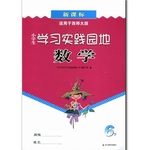题目内容
23. SHANZHAI, a phrase that entered Chinese Internet-speak in 2008, has ______ into everyday commerce.
A. turned over B. gone over C. looked over D. split over
D

 学习实践园地系列答案
学习实践园地系列答案近日来,山寨文化已经出现在人们的视野中,特别是山寨手机日趋走红,对此现象人们看法不一。请你根据下表内容写一篇120词左右的英语短文,简要介绍该现象,并谈谈你的观点。短文的开头已经给出,但不计入总词数。
| 30%的人认为山寨手机 |
| 1.外观漂亮; 2 价格低廉; 3 满足大多数人的要求; 4. 品种繁多。 |
| 70%的人认为山寨手机 |
| 1. 不可靠; 2.产品质量差; 3. 售后服务得不到保障; 4. 很多消费者买了之后大呼上当。 |
Recently, Shanzhai culture has already come into people’s views, especially Shanzhai mobile phones which are increasingly more popular. Different opnions on this phenomenon are as follows…
The 115-year-old prestigious (有名望的)Oxford Dictionary will now include popular new Chinese terms like“shanzhai” “youtiao” and “fangnu”, as part of the modern Chinese language.
As China plays a more and more important role in the world economy, the Chinese language is forever developing, attracting more attention from people who want to understand this ancient yet lively language.
For instance, the word “shanzhai” is used to describe the countless knockoffs(名牌仿制品)of iPhones or designer bags imprinted with Louis Vuitton logos.
Another new term in the new edition is the word “fangnu”, or a “mortgage slave” —a term used to describe the phenomenon in large cities where well-educated youth complain of a miserable existence due to the heavy burden of a home mortgage.
All these new or often fashionable terms can be found in the new Oxford English –Chinese, Chinese-English dictionary that was unveiled(公布于众的)in the recently concluded Beijing International Book Fair last week.
The dictionary now is available for retail sales since the beginning of this month.This dictionary is the largest single volume English-Chinese, Chinese-English dictionary and contains 670,000 words and phrases after five years of preparation.Sixty editors from the Oxford University Press and its partner in China—the Foreign Language Teaching and Research Press—worked together on the project.According to Julie Kleeman, the dictionary’s chief editor, most of the firm’s editors were Chinese, while about one fourth were native-English speakers.
“We don’t want to make it florid(绚丽的), we want it to be modern and conversational...many of the words in the present dictionary are no longer in use,” said Kleeman.“The need for studying Chinese by foreigners today is totally different from decades ago...Precise, native and practical—that is our main advantage,” she said.
Kleeman said newer publications updates will be available only for the online version as language often changes too quickly for book versions to keep pace.The online version will also offer a Chinese phonetic pronunciation guide.The online version, allowing access via different platforms from the PC to the iPad, will be ready “as soon as possible”, Kleeman said.
【小题1】 According to the above passage, we learn that ________.
| A.knockoffs can be found in China but not very often. |
| B.the Oxford University Press made the dictionary without outside aid. |
| C.most Chinese editors are also native speakers of English. |
| D.well-educated youth in China’s big cities have difficulty buying houses. |
| A.book versions can’t keep up with the changes of language. |
| B.the computer network is available everywhere. |
| C.book versions can’t offer a Chinese phonetic pronunciation guide. |
| D.computer technology like the PC and the iPad keeps pace with language. |
| A.New Chinese terms like “shanzhai” and “fangnu” have got into Oxford Dictionary. |
| B.The latest Oxford English-Chinese, Chinese-English Dictionary is on the market. |
| C.Oxford Dictionary has become more fashionable due to the Chinese language. |
| D.Beijing International Book Fair was where the new Oxford Dictionary was published |